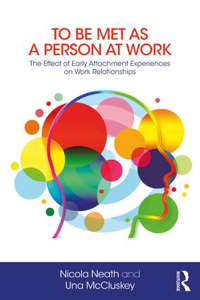Una McCluskey
Una McCluskey graduated from University College Dublin, did her professional social work training at the University of Edinburgh, and got her PhD from the University of York. She has written extensively on individuals, couple, family and group systems, and has developed her own model for exploring attachment dynamics in adult life. Her research on affect attunement in adult psychotherapy led her to develop a theory of interaction for psychotherapy and particularly to identify and rate the concept of goal corrected empathic attunement. Throughout the last ten years she has been providing courses for workers and experienced professionals in the field of psychology, psychotherapy, social work, medicine, organisational management and development, education, nursing, art therapy, legal practice, religious and pastoral carers, to enable them explore their own dynamics of attachment in adult life as outlined by the work of Heard and Lake and to check its application to their personal and work life.
View the author's own website : http://www.unamccluskey.com
Attachment Therapy with Adolescents and Adults: Theory and Practice Post Bowlby: Revised Edition
This is a revised edition of an important title originally published in 2009. It is written primarily for psychotherapists and other practitioners and describes a new and effective form of dynamic... (more)
To Be Met as a Person at Work: The Effect of Early Attachment Experiences on Work Relationships
This book provides an account of how the 'Theory of Attachment-Based Exploratory Interest Sharing' (TABEIS) and the practice of Goal Corrected Empathic Attunement (GCEA) was used in a university... (more)
Transference and Countertransference from an Attachment Perspective: A Guide to Clinical Practice
Locating the phenomenon of transference within an evolutionary perspective, this important book develops a new form of dynamic therapy that focuses on the dynamics of attachment in adult life and... (more)
Psychodynamic Perspectives on Abuse: The Cost of Fear
This book brings together contributions on abuse from writers working in social policy, social work, and psychotherapy, and explores the nature and ramifications of abuse in a new light. (more)
To Be Met as a Person: The Dynamics of Attachment in Professional Encounters
This book is a thought-provoking read that sets out a framework for thinking about the way we interact with one another. It helps us make sense of the feelings we have when we are successful and not... (more)






